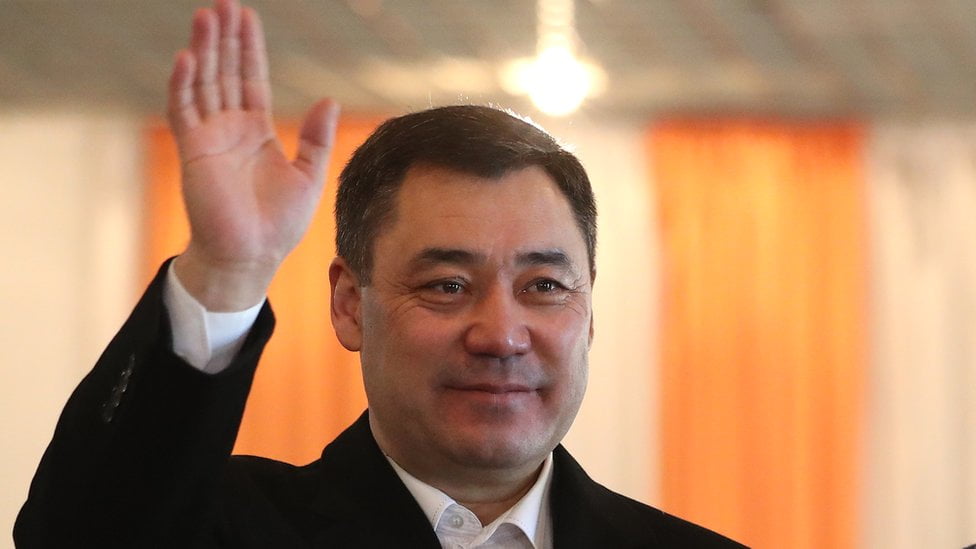
Authoritarian tendencies in Central Asia continue to grow. The region lacks democratic traditions and its clan-based societies overwhelmingly prefer some form of despotism rather than Western liberal democracy.
By Nikola Mikovic
Voters in Kyrgyzstan recently decided to abandon parliamentary democracy. The former Soviet republic is returning to the presidential political system that dominated the Central Asian nation until 2010.
On January 10 the country held a nationwide referendum on constitutional reforms. According to reports, 84 percent of the voters opted for a presidential system. In a simultaneous presidential election, Sadyr Japarov won the presidency by a landslide. With nearly all ballots counted, he has taken 79.9 percent of votes, despite low voter turnout of less than 39 percent.
Japarov served his term in prison on kidnapping charges before crowds freed him during protests against allegedly rigged elections in October 2020.
In a series of moves, he consolidated power serving simultaneously as acting Prime Minister and President. A presidential system is expected to give him greater powers when a new constitution is passed - possibly later this year.
Kazakhstan
At the same time, in neighboring Kazakhstan, the ruling Nur-Otan party won the parliamentary elections with nearly 72 percent of the votes. President Kassym-Jomart Tokayev, has pledged gradual political reforms since being eased into his post by former leader Nursultan Nazarbayev, who called time on nearly three decades as head of state in early 2019.
The 80-year-old Nazarbayev retains powerful positions, including the chairmanship of the Nur Otan party that controls the lower house and boasts 800,000 members among a population of 19 million.
In other words, although officially a democratic country, the opposition in Kazakhstan barely exists and the energy-rich Central Asian nation is ruled by Nazarbayev and the political elite around him. Moreover, authoritarian rule and the presidential form of government are very popular not only in Kazakhstan and Kyrgyzstan, but also in many former Soviet republics.
In some countries one person has been in power for decades. For instance, Vladimir Putin has been ruling Russia, be it as a president or prime minister, for 20 years. The first president of Uzbekistan, Islam Karimov, ruled the country for 25 years until. Emomali "Leader of the Nation" Rahmon has been leading Tajikistan for 26 years. President of Belarus Alexander Lukashenko has been in power for 26 years as well.
Although the US has strongly opposed the referendum in Kyrgyzstan, and the EU has expressed a similar position, the Western powers seem to turn a blind eye on the growing authoritarian tendencies in this part of the world. Kyrgyzstan is one of the poorest countries in the region, it lacks any significant natural resources and therefore does not represent an important target for “promoters of democracy”.
Kazakhstan, on the other hand, is an energy-rich nation that is successfully balancing between Russia, the US and China. Until the foreign actors agree on redistribution of Kazakhstan’s oil and gas, the West is expected to refrain from imposing democracy on this country.
Vladimir Putin
For Russia, stability has always been a priority over the form of governance in Central Asia. Moscow does not mind the presidential form of government in Kyrgyzstan, nor the status quo in Kazakhstan. As Russian President Vladimir Putin said, what is happening in the region does not result from short-term developments, but rather from the countries’ efforts to find their own path.
Speaking of Kyrgyzstan, Putin recently said that the Russian ally is “always trying to run ahead of the train in their attempts to fit their domestic policy into the mould of some Western countries”.
“At the same time, they lack the level of political consciousness and institutional maturity of the kind, for example, France has. Political system in France Republic took decades, if not centuries, to take shape. It would not be an exaggeration to say that it took centuries for the parliamentary form of government to come about or to have traditional political parties with steady political platforms that the voters understand. Established political systems. But do countries in the post-Soviet space have all this”, Putin said during his annual press conference in December 2020.
Although it is believed to be a universal political system, modern democracy is an export product of the Western civilization and is not compatible with other cultures. That is why it is extremely difficult for the United States to introduce and successfully implement democracy in countries like Iraq, Afghanistan and Libya.
The elections and a referendum in Kyrgyzstan and Kazakhstan are clearly demonstrating that the region is gravitating toward authoritarianism, which is a traditional and a widely accepted form of government in this part of the world.
Nikola Mikovic is a Serbian journalist and a senior Geopolitical Analyst he publishes often for The Levant News.






